Respiratory physician Lutz Beckert considers chronic obstructive pulmonary disease management, including the prevention of COPD, the importance of smoking cessation and pulmonary rehabilitation, and the lifesaving potential of addressing treatable traits. He also discusses the logic of inhaler therapy, moving from single therapy to dual and triple therapy when indicated, as well as other aspects of management
Kumeu: ‘We’ve been under the hammer’
Kumeu: ‘We’ve been under the hammer’

Kumeu Village Medical Centre featured in a cover story in 2020. Zahra Shahtahmasebi caught up with team members to see how they had fared in 2021
Pictured above:
Front and centre: William Ferguson (GP and owner). From back: Tara Leigh Scott, Iris Dawson, Trisha Cleur (with glasses), Nathan Joseph (GP), Niamh Kernan (GP), Tamara O’Dwyer, Cheryl Germanis (with glasses), Grace Morgan (GP), Liane Otto and Lesley Clapshaw
- We had half the staff, but doing the same amount of work as normal, it was horrible – nurse lead Lesley Clapshaw.
- I have no particular interests in COVID or infectious diseases, but it’s on my mind all the time now – specialist GP William Ferguson.
- Now it’s steady and we know what we’re doing, we know our limits – it’s like a well-oiled machine – healthcare assistant and receptionist Trisha Cleur.
- There needed to be more planning and foresight. The needs of Māori have not been addressed – specialist GP Nathan Joseph.
Of particular annoyance is the way COVID-19 has taken centre stage and pushed all other healthcare interests and issues aside
It’s hard for Lesley Clapshaw to come up with anything positive about the year 2021.
“We’ve just been under the hammer, it’s been a very long year,” says Ms Clapshaw, nurse lead at Kumeu Village Medical Centre in west Auckland.
“Everyone is tired and in need of a holiday.”
The first two weeks of the Alert Level 4 lockdown that began in August were “brutal” for the centre, she says.
West Auckland was then hit by a wild storm that delivered more than 200mm of rain on Kumeu in the space of 24 hours.
The extensive flooding affected the local pathology service and closed shops. One of the doctors, John Elliott, went out in his four-wheel drive to help people retrieve their boats.
Luckily, the water didn’t get inside the practice, says Ms Clapshaw.
Meanwhile, the team put in place strict protocols to keep patients and staff safe from the highly infectious Delta strain.
While they did not have the capacity to carry out vaccinations, team members continued to swab for COVID-19 and maintained their “red and green” streams for triaging patients.
Staff were split into two separate teams, one working the first half of the week, the other taking over on a Wednesday afternoon.
“We had half the staff, but doing the same amount of work as normal, it was horrible,” says Ms Clapshaw.
Practice manager Liane Otto says the team system came to an end in October: “We merged again, because we just couldn’t keep up.”
Now one of the GPs is rostered onto the red stream and works almost exclusively outside, swabbing and assessing symptomatic patients in their cars or in the hired portacabin.
When I ask Ms Otto to describe the past year in one word, she quickly responds: “Relentless.”
Speaking with five weeks to go until Christmas, she had no plans and felt no excitement, such was the level of uncertainty over what will happen next.
“I’ve been trying since August to get to Nelson to see my mum. I feel as though I can’t take a deep breath – like everything is constricted.”
As she says, many businesses could decide whether or not to open during lockdown; general practice didn’t have that luxury.
Funding streams have been “a nightmare”, and Primary Options for Acute Care (POAC) has fallen behind on payments for swabbing – not that Ms Otto blames the POAC organisation.
Sharing information to keep the team up to date has been another challenge. All available tools, including the practice management system, text messaging and the whiteboard in the lunchroom, have been used to convey important messages.
When staff were split in two teams, they would either catch one another up at handover, or leave a detailed list, says Ms Otto.
Ms Clapshaw says patients were more worried in the recent lockdown than in previous ones, and were stocking up on medicines for fear of supply issues. The practice processed twice as many prescriptions as normal.
Whether there will be any relief over Christmas remains to be seen. She has plans to catch up with her daughter in Te Anau, but feels sceptical: “I’m not expecting it will happen, until we’ve actually got there.”
It is lunchtime when I visit and the practice is busy, but not in the traditional sense. The waiting room is an empty space where the magazines and toys sit untouched now that the car park is where patients wait until they’re called.
The phones at reception ring nonstop and a nurse by the treatment room swats an incessantly noisy fly.
Other team members manage to snatch a short breather in the small but colourful lunchroom.
The team is constantly on the move and it’s hard to pin them down to chat.
Specialist GP and practice co-owner William Ferguson wears a PPE gown over a crisp white shirt and black pants.
General practice is fed up, Dr Ferguson says. He tells of a level of exhaustion setting in for those on the front line who were already thoroughly tired before the pandemic. Dealing with COVID takes a “massive team effort” in general practice, he says.
“We are all so dependent on each other – the moment one part of that goes AWOL, then we’re in real trouble.
“It’s like playing your opponent, but you’ve already had a training run and worked up a sweat before getting on the field for a game – which has no end in sight.”
Of particular annoyance is the way COVID-19 has taken centre stage and pushed all other healthcare interests and issues aside, including long-term conditions management.
“I have no particular interests in COVID or infectious diseases, but it’s on my mind all the time now.”
COVID-19 conversations with patients in the most recent outbreak have sometimes been met with resistance, he says.
“In my 36 years in general practice, you can spend a good 30 minutes carefully explaining why they might need a test or operation, and it’s extremely rare that they would not go with it. About one in 30 or 40, a patient will dig their toes in.
“We did a blitz of ringing our Māori, Pacific and high-needs patients who were non-vaccinated and thought we’d won them round. But when we rang back to check two weeks later, maybe one in 10 had actually gone through with it.”
Dr Ferguson talks of the “broken relationship” between primary care and the Government, and says its perception of the GP’s role seems negative.
This, he says, is illustrated by the way issues with primary care funding have not been addressed, even in the upcoming health reforms.
“Ostensibly, the reforms were a review of primary care, but it turned into a review of the whole health system.
“The raison d’être has been kicked down the road,” says Dr Ferguson.
A moment later, I am stopped by Ms Clapshaw. “I did manage to think of two positives,” she says.
One is the local community, who for the most part have been kind and appreciative towards the practice.
Oh, and “lots of free coffees”, she adds with a grin.
I meet Trisha Cleur, who Ms Otto says is a “healthcare assistant and receptionist extraordinaire”.
Ms Cleur says everyone is starting to get used to the “new normal”.
“In the beginning, we were in survival mode, figuring it all out, but now it’s steady and we know what we’re doing, we know our limits – it’s like a welloiled machine.”
She hasn’t given much thought to Christmas and believes not much will be in different in 2022 – the practice will still be implementing the same precautions.
Specialist GP Niamh Kernan, who I find dressed in a Christmas-themed blue scrub top, is looking forward to the festive season.
Dr Kernan has leave booked and hopes to get in some boating before returning to deal with 2022 and its challenges. She expects that pent-up health needs from this year will come to the fore.
That’s likely to mean higher COVID-19 case numbers, new variants, more telehealth, and even more pressure for general practice with a bigger role in managing COVID-19 in the community
But she says it’s not clear what that role will be.
I catch up with specialist GP Nathan Joseph as he is about to begin the afternoon shift. Dr Joseph tells me he became sick of lockdown and “Alert Level 3.2.1”, and the traffic-light system that replaced it is hard to understand.
Allowing Aucklanders to leave the city on 15 December is a cool idea, but he is concerned about Māori and the persisting low vaccination rates, particularly in areas like Northland, Tairāwhiti and Flaxmere.
“I try not to be critical of the Government, but they should have acted faster,” he says. “There needed to be more planning and foresight. The needs of Māori have not been addressed.”
Dr Joseph is in need of a break. The lockdown has been mentally draining for him and his family. While he has been going to work, his wife has been at home looking after her mother.
For three months, the anxieties of keeping mum safe have played on his wife and on him, too.
Dr Joseph is rostered to work on Christmas Day and won’t mind missing a family reunion in Hastings.
He and his immediate whānau will stay within Auckland, probably taking a few days to go camping, to keep the rest of the family and others safe.
He urges people to enjoy their holidays, but to always be mindful and not make assumptions.
The Kumeu Village Medical Centre staff admit the year’s challenges have been hard going.
But the consensus is they’re happy with how adaptable they have been and the team spirit they have shared.
They have collaborated and shown strength, and enjoyed their interactions with patients who genuinely care for them.
Despite the bleak descriptions of the year that has been, Ms Clapshaw says she holds hope for 2022. “I’m always optimistic,” she says.

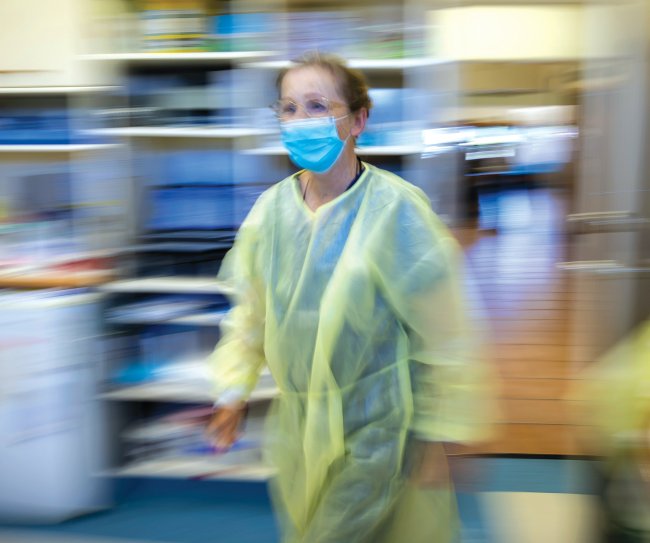
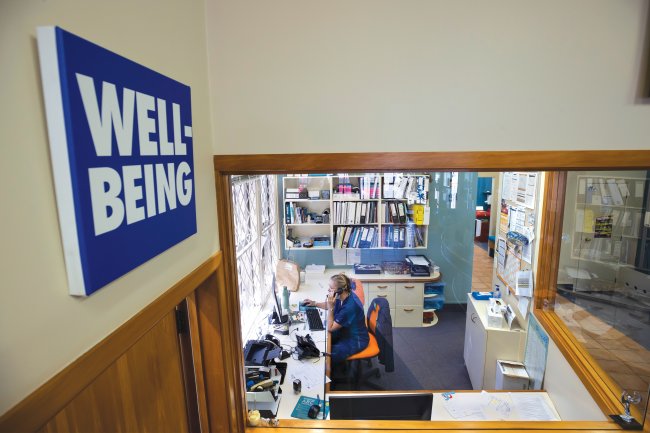
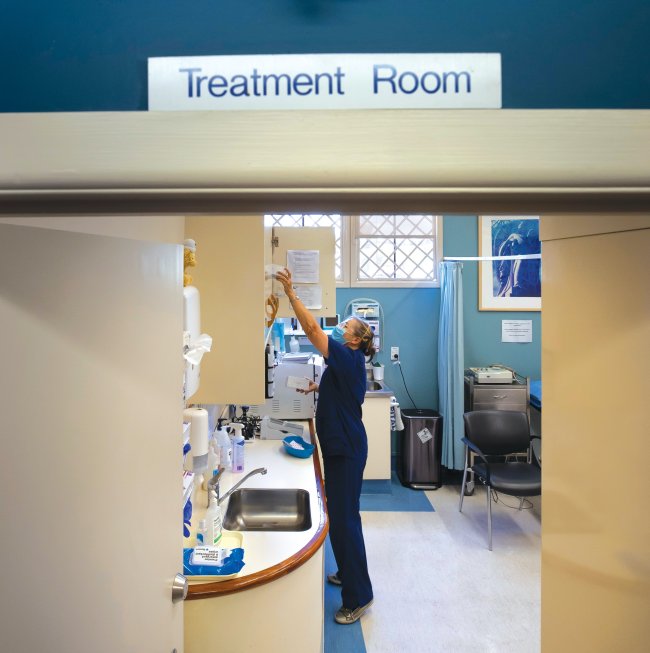
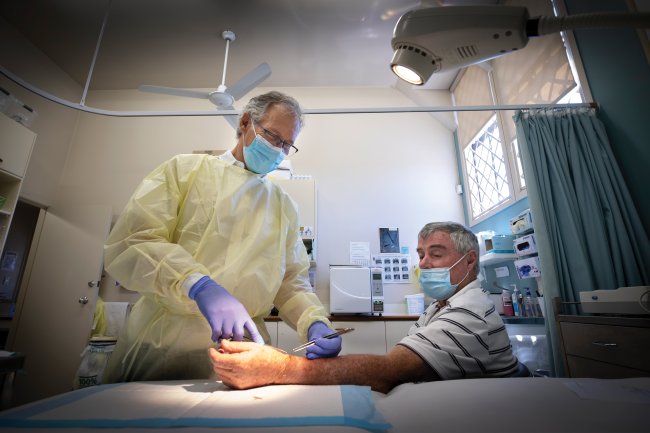
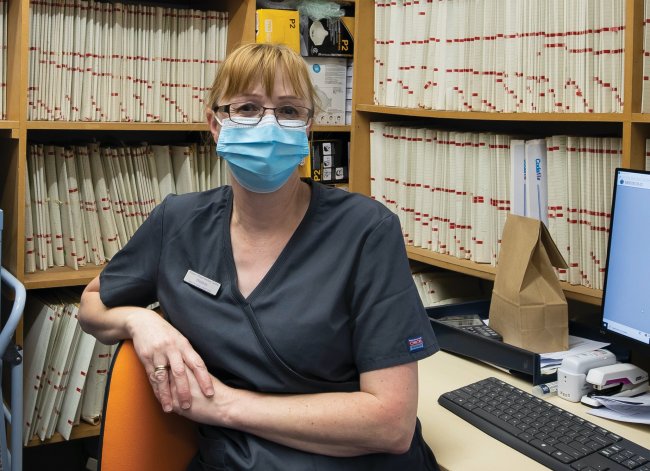




![Barbara Fountain, editor of New Zealand Doctor Rata Aotearoa, and Paul Hutchison, GP and senior medical clinician at Tāmaki Health [Image: Simon Maude]](/sites/default/files/styles/thumbnail_cropped_100/public/2025-03/Barbara%20Fountain%2C%20editor%20of%20New%20Zealand%20Doctor%20Rata%20Aotearoa%2C%20and%20Paul%20Hutchison%2C%20GP%20and%20senior%20medical%20clinician%20at%20T%C4%81maki%20Health%20CR%20Simon%20Maude.jpg?itok=-HbQ1EYA)
![Lori Peters, NP and advanced health improvement practitioner at Mahitahi Hauora, and Jasper Nacilla, NP at The Terrace Medical Centre in Wellington [Image: Simon Maude]](/sites/default/files/styles/thumbnail_cropped_100/public/2025-03/2.%20Lori%20Peters%2C%20NP%20and%20advanced%20HIP%20at%20Mahitahi%20Hauora%2C%20and%20Jasper%20Nacilla%2C%20NP%20at%20The%20Terrace%20Medical%20Centre%20in%20Wellington%20CR%20Simon%20Maude.jpg?itok=sUfbsSF1)
![Ministry of Social Development health and disability coordinator Liz Williams, regional health advisors Mary Mojel and Larah Takarangi, and health and disability coordinators Rebecca Staunton and Myint Than Htut [Image: Simon Maude]](/sites/default/files/styles/thumbnail_cropped_100/public/2025-03/3.%20Ministry%20of%20Social%20Development%27s%20Liz%20Williams%2C%20Mary%20Mojel%2C%20Larah%20Takarangi%2C%20Rebecca%20Staunton%20and%20Myint%20Than%20Htut%20CR%20Simon%20Maude.jpg?itok=9ceOujzC)
![Locum GP Helen Fisher, with Te Kuiti Medical Centre NP Bridget Woodney [Image: Simon Maude]](/sites/default/files/styles/thumbnail_cropped_100/public/2025-03/4.%20Locum%20GP%20Helen%20Fisher%2C%20with%20Te%20Kuiti%20Medical%20Centre%20NP%20Bridget%20Woodney%20CR%20Simon%20Maude.jpg?itok=TJeODetm)
![Ruby Faulkner, GPEP2, with David Small, GPEP3 from The Doctors Greenmeadows in Napier [Image: Simon Maude]](/sites/default/files/styles/thumbnail_cropped_100/public/2025-03/5.%20Ruby%20Faulkner%2C%20GPEP2%2C%20with%20David%20Small%2C%20GPEP3%20from%20The%20Doctors%20Greenmeadows%20in%20Napier%20CR%20Simon%20Maude.jpg?itok=B0u4wsIs)
![Rochelle Langton and Libby Thomas, marketing advisors at the Medical Protection Society [Image: Simon Maude]](/sites/default/files/styles/thumbnail_cropped_100/public/2025-03/6.%20Rochelle%20Langton%20and%20Libby%20Thomas%2C%20marketing%20advisors%20at%20the%20Medical%20Protection%20Society%20CR%20Simon%20Maude.jpg?itok=r52_Cf74)
![Specialist GP Lucy Gibberd, medical advisor at MPS, and Zara Bolam, urgent-care specialist at The Nest Health Centre in Inglewood [Image: Simon Maude]](/sites/default/files/styles/thumbnail_cropped_100/public/2025-03/7.%20Specialist%20GP%20Lucy%20Gibberd%2C%20medical%20advisor%20at%20MPS%2C%20and%20Zara%20Bolam%2C%20urgent-care%20specialist%20at%20The%20Nest%20Health%20Centre%20in%20Inglewood%20CR%20Simon%20Maude.jpg?itok=z8eVoBU3)
![Olivia Blackmore and Trudee Sharp, NPs at Gore Health Centre, and Gaylene Hastie, NP at Queenstown Medical Centre [Image: Simon Maude]](/sites/default/files/styles/thumbnail_cropped_100/public/2025-03/8.%20Olivia%20Blackmore%20and%20Trudee%20Sharp%2C%20NPs%20at%20Gore%20Health%20Centre%2C%20and%20Gaylene%20Hastie%2C%20NP%20at%20Queenstown%20Medical%20Centre%20CR%20Simon%20Maude.jpg?itok=Z6u9d0XH)
![Mary Toloa, specialist GP at Porirua and Union Community Health Service in Wellington, Mara Coler, clinical pharmacist at Tū Ora Compass Health, and Bhavna Mistry, specialist GP at Porirua and Union Community Health Service [Image: Simon Maude]](/sites/default/files/styles/thumbnail_cropped_100/public/2025-03/9.%20Mary%20Toloa%2C%20Porirua%20and%20Union%20Community%20Health%20Service%20in%20Wellington%2C%20Mara%20Coler%2C%20T%C5%AB%20Ora%20Compass%20Health%2C%20and%20Bhavna%20Mistry%2C%20PUCHS%20CR%20Simon%20Maude.jpg?itok=kpChr0cc)